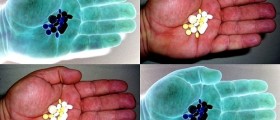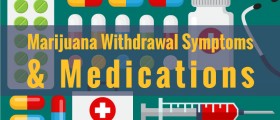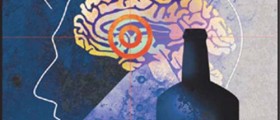
Usually, those who take drugs, take them in order to reach the state of orgasmic elation and euphoria, all of which take place once the drug affects the central nervous system. Heroin, for example, once injected in the vein, produces a feeling of rush, which is followed by joy and relaxation, evolving into sleepiness and sedation. If people who are hooked up on narcotics stop using the drugs, their organisms will start triggering the withdrawal symptoms, usually forcing them to start using the drug again.
However, these withdrawal symptoms must be endured in order for one to manage to become free from drugs. During rehabilitation, health facilities provide narcotic abusers medications which reduce the withdrawal symptoms, making it easier for them to cope with their cravings.Signs of Narcotic Abuse
People who abuse certain drugs get less and less affected by it, usually increasing the dose due to this occurrence. Moreover, addicts refuse to stop taking the narcotic substance, even when they known that it is bad for their health and well-being. Rather, they continue abusing the narcotic, for personal pleasure.
Individuals on narcotics are not capable of feeling pain since they are in a constant state of euphoria and sedation. Also, their breathing is slower than normal, being shallow. Eyes are the organs which give the abusers away. Thus, drug addicts tend to have dilated pupils and blood shut eyes.
Nausea and vomiting are also common with these people, along with skin itching and skin problems, constipation and speech difficulties. Finally, they are often confused, lack proper judgment and have needle marks on the surface of their skin.
Signs of Narcotic Withdrawal
Once a narcotic abuser stops taking his/her drugs, withdrawal symptoms start taking place. These withdrawal symptoms get worse with the length of the previous narcotic abuse. Heroin abusers start suffering once 12 or 14 hours pass after their last fix. On the other hand, methadone abusers feel the withdrawal symptoms after a day or day and a half while heroin abusers experience these symptoms up to 72 hours after the last dose. In fact, heroin withdrawal period may last for up to two weeks. Methadone withdrawal tortures abusers for three to four weeks.
As for the symptoms of narcotic withdrawal, anxiety, nervousness, cravings, violent breathing, yawning, runny nose, excessive saliva production, goose-flesh, stuffy nose and muscle aches are just some of them. Narcotic abusers may also be troubled by nausea and vomiting, stomach cramps, sweating and diarrhea, tremors and appetite loss.
Finally, narcotic abuse can result in many health problems such as pneumonia, skin problems, abscesses, seizures, neurological complications, arthritis, premature birth and numerous other health issues, including death.






_f_280x120.jpg)









Your thoughts on this
Loading...